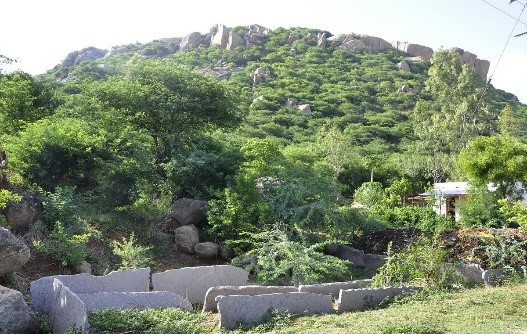Published on: September 14, 2022

New botanical garden
New botanical garden

Why in news?
As part of Karnataka’s afforestation move, a dense forest will be created on a patch of 11 acre of land at the 228-acre Botanical Garden Project that is coming up at Doddasaggere, in Tumakuru district.
Highlights:
- As part of the plan, one lakh dry deciduous (trees that drop leaves during dry winter and spring) tree saplings would be planted over 11-acres of land.
- The Horticulture Department had earlier said it would create five botanical gardens along the lines of Lalbagh, at Doddasaggere in Tumakuru, Annakunuru in Chikkaballapura, Dattagalli in Mysuru, Tarakanahalli in Uttara Kannada and Kannamangala in Bengaluru East.
- This green intervention of native species would be able to absorb 21,00,000 kilograms of carbon and produce 1,18,00,000 kilograms of oxygen annually.
- The joint partners are also planning to build over 1,000 percolation wells at various locations in the city. They are kick-starting this project by creating a 4 feet percolation model well at Lalbagh. Each of these percolation wells would have the capacity to conserve 1,28,000 litres of rainwater annually and help augment the groundwater table level in the catchment area.
Joint partnership
- To carry out this first of it kind of initiative, Mphasis (F1 Foundation), the CSR arm of tech firm Mphasis, United Way of Bengaluru (UWBe), an NGO that works with communities to take local action for global impact and the state Department of Horticulture have announced their joint partnership.
- UWBe would ensure maintenance of the green cover of the forest for three years with support from Mphasis. This would include regular watering, manuring, de-weeding and mulching of the area.
- Besides these, integrated watershed development, stream restoration, soil cum moisture conservation activities also would be executed at the project site.
Green intervention benefits:
Just as Lalbagh is considered the lung of Bengaluru, the new green intervention would help
- improve the air quality,
- enhance biodiversity,
- reduce the temperature in the vicinity,
- build an oxygen bank and carbon sink.
-
Help retain ground water

